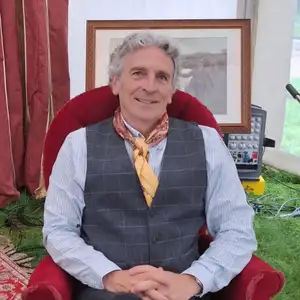While the SOAS community does have strong working relationships with UK government departments, incoming changes in the REF structure and a redirection of government funding mean that as an Arts, Humanities and Social Sciences university we must also set our sights further afield and look at global priorities for higher education such as the UN’s Sustainable Development Goals (SDGs).
SOAS’ postcolonial discourse forms an important part of its own historical reconciliation, which means that along with our international community, we are well-placed as an institution for engagement that builds fair and collaborative relationships with multilateral organisations, NGOs, and national and local policymakers.
International support for the SDGs means that issues such as “reduced inequalities” and “climate action” have been brought to the forefront of policy development, and collaboration towards an outcome of peace, prosperity, equality and sustainability is becoming a shared goal. This focus on sustainable development from the global community, as well as wider calls for decolonisation, mean higher education should be more outwardly-focused and embrace leadership from not just the wealthier or more powerful countries. “Trade not aid”, for instance, was a key topic explored at recent SOAS events like our visit by the President of Malawi. Leadership on international struggles like gender equality have frequently come from the Global South (as demonstrated by research by our Centre for International Studies and Diplomacy that then formed UN policy), so it is important to bring together expertise from spaces that have often been marginalised or erased, in order to create good knowledge exchange practice and collaborative research. SOAS is home to our Decolonising Working Group, which looks at ways to dismantle colonial approaches to teaching as well as research and public engagement.
While a colonial mindset can prevent, in particular, the goal of “Peace, Justice and Strong Institutions”, research programmes like Parliaments4People strengthen relationships between democratic institutions, research and society, allowing for more inclusivity and transparency. Work for this programme has taken SOAS researchers to Myanmar and Ethiopia, and local agency was of key importance and we’d take more of a back-seat as an organisation from the Global North (referred to as “Ethical leadership”). While a lot of anti-Corruption work by the UK in some countries can often spread itself too thin, SOAS’ Anti-Corruption Evidence Consortium undertakes fieldwork in Bangladesh, Tanzania and Nigeria that is specifically targeted towards local actors following and implementing the law.
Direct research is not the only route through which universities can engage in sustainable development policy. University staff across the UK are well-placed to regularly participate in consultancy and capacity-building for government departments and foreign embassies and influence those spaces, as SOAS does, with recent examples including training the FCO’s Diplomatic Academy. Our Director, Baroness Amos, recently provided evidence at a House of Lords Select Committee on sub-Saharan Africa, where she pointed out that collaboratively working with African governments has a far higher success rate than an imposition of UK agendas, and truthfully reconciling the legacies of slavery and colonialism with the continent is vital in developing better relationships there. It is also important to remain engaged with influential stakeholders. UK universities are still very attractive to international students and academics, and SOAS is among many institutions that has a wealth of talent and skill in the policymaking field among its alumni network, fellows and honorary graduates.
Universities must embrace the postcolonial strategy which global policymaking is moving towards, so that we can all, as an international community, fairly and pragmatically achieve the sustainable development goals.


